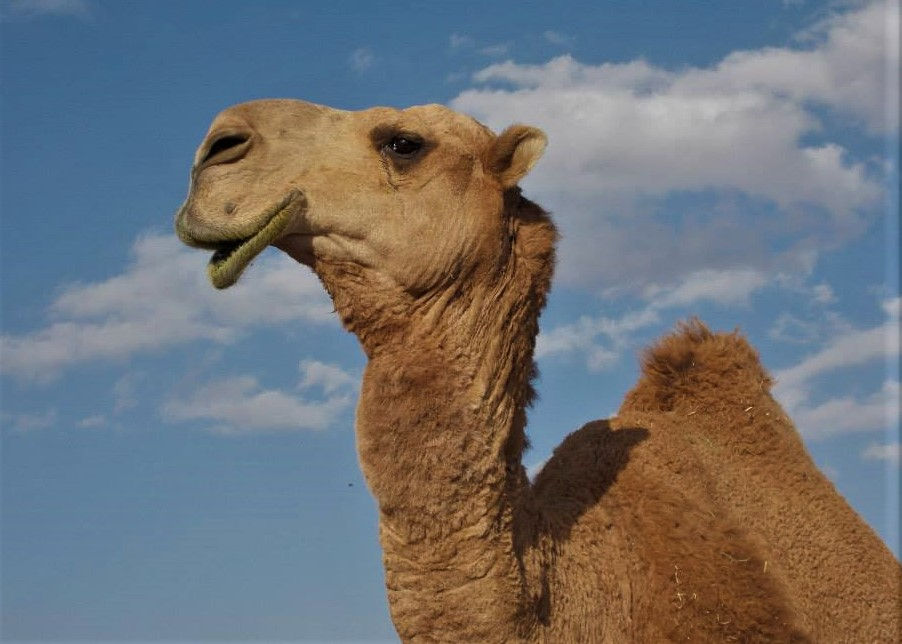Abha: Desert Walks
- Matthew P G

- Nov 8, 2021
- 5 min read
Updated: Mar 17, 2023

Every Friday for three of my five years living in Saudi Arabia, I did a long walk in the desert with my colleague WBT.
The name "Saudi Arabia" conjures many things, but probably high on any list would be oil and desert. The Saudis all agree they live in a desert kingdom, but amazingly none of them says they actually live in the "desert". For the Saudis, the real "desert" is the vast Empty Quarter in the middle of the Arabian Peninsula that spills out into Yemen, Oman, and UAE. No one lives there. It is waterless with towering sand dunes. THAT is the desert, and the rest of the country is not -- for Saudis.
When I lived in Abha, my apartment was on the last street in town before the desert began. It was a very stark ending to the city - to the right, full blocks of homes and apartments, to the left - nothing. The locals just saw this as undeveloped land. One of my local Saudi colleagues who had studied in Oklahoma once told a few of us Americans at a gathering that he had not seen the desert until he was in his 20's. One of my friends leaned over and quipped, "what, his house had no windows?" Desert is finally what you think is desert. For me, my walks were in very barren places with a few scrub trees and grasses and occasional goats, sheep, and camels. That was enough to qualify as desert for me.
To be more precise, imagine a flat stone with sand on it and water on two sides. Tip that stone a bit. The low side, where the sand is spilling into the water would be the warm, sandy beaches of the Persian Gulf. The desert starts right at water's edge. All the cities there are modern: Damman, Doha, Abu Dhabi, Dubai. Follow the stone across to the other side and the sand has fallen away from the edge and created a huge cliff. That is the Hejaz Escarpment above the Red Sea. The very edge of the stone would have a thin green line of moss because the winds blowing in from Africa pick up moisture over the Red Sea and slam into the Hejaz Escarpment and drop it as rain. The mountain peaks have cloud forests but a short drive away, the desert begins. It could be pouring on one side of Abha and we would be bone dry on our side. As far a I was concerned, after Abha was "desert" even if for Saudis the desert was still far far away.
Why Friday? Saudi Arabia developed very quickly after the discovery of oil. One of those developments was immediate addiction to automobiles and the roads to carry them. Saudi Arabia would make Los Angeles blush in its "non-walkability". There are precious few sidewalks outside of city centers. However, Fridays are a day of silence and no traffic. It is their religious day-off and the roads in the cities and towns on Friday mornings are apocalyptically empty. This made for the perfect time to walk on the access roads into the desert. Our walks were usually quite epic - up to four hours in length. Since Abha is blessed with eternal spring weather due to the altitude, we never got overly hot nor parched. We literally followed goat paths and saw where they would take us.
What did I learn? Well, in all that time with WBT, I learned a whole lot about his life! The man was an open book as long as HE opened the book. It was odd to know someone who repeatedly said "I hate people who are always in my business asking questions", yet who volunteered a lot of private information without prompting. A big part of my walks was the life history of WBT. What else? We came across Bedouin camps in the desert. We gave them a wide berth, but there were families living there in tents alongside camels, sheep, and goats. Modern Saudi Arabia seemed to have missed them out. Our Saudi friends told us they WANTED to live that way. I guess I will never know. One big take away - at least some Saudis are dirt poor.
We saw the desert bloom crazily after occasional rains. It was a time of fast blooming flowers that seemed to have almost overnight life cycles. We saw packs of wild dogs as the Bedouins keep dogs to mind their flocks, but some animals escape and breed. Wild dogs are scary. We saw lots and lots of garbage. In a nation of free garbage pick up, people would still drive into the desert and dump their garbage. It was both sad and baffling. This attracted all kinds of wildlife (and dog-life) - it was rumored there were hyenas (never saw one, thank God). We saw dung beetles rolling their little balls of shit all over the place. Mostly we just saw emptiness and enjoyed a lot of silence.
There were camels! We were told there were no more wild camels in Saudi Arabia and they all had owners. Sometimes we wondered "who do you belong to?" All the camels paid us no mind whatsoever. Occasionally they were with human minders, but mostly they were out grazing on their own. Camels are for riding, eating, and milk. You really cannot beat their versatility. Camels are apparently very clever with long memories as well (a famous Saudi folk tale warns "never cross a camel") Driving at night outside of cities is especially dangerous as camels will dart across the road and if you hit one with your car, it is almost always fatal for everyone involved.
Much of the time, we walked silently. Sometimes I was ahead, sometimes WBT. We were both decompressing from a week of living in a place that was so foreign to what we were used to. It was nice to be a in place with just the sound of our steps and the wind. I imagined my stress of the week was blown off into the sands of the Empty Quarter hundreds of miles away. I had run away from my last life crisis about as far as someone could go.
Eventually we stopped walking. Maybe we needed it less as we got used to life there? It began to feel very much like "been there, done that". Also, we had been "discovered" by the locals and people in off-road vehicles started to come looking for the two American guys who walked in the desert outside of town on Friday mornings. WBT was not that concerned, but I was. The young males of Saudi Arabia have too much pent up testosterone and too many rules to follow -- there are groups of them just looking for trouble. We were seeking solitude and that had come to an end.
I never thought I would spend three years of my life walking regularly in the desert of Saudi Arabia.



Comments